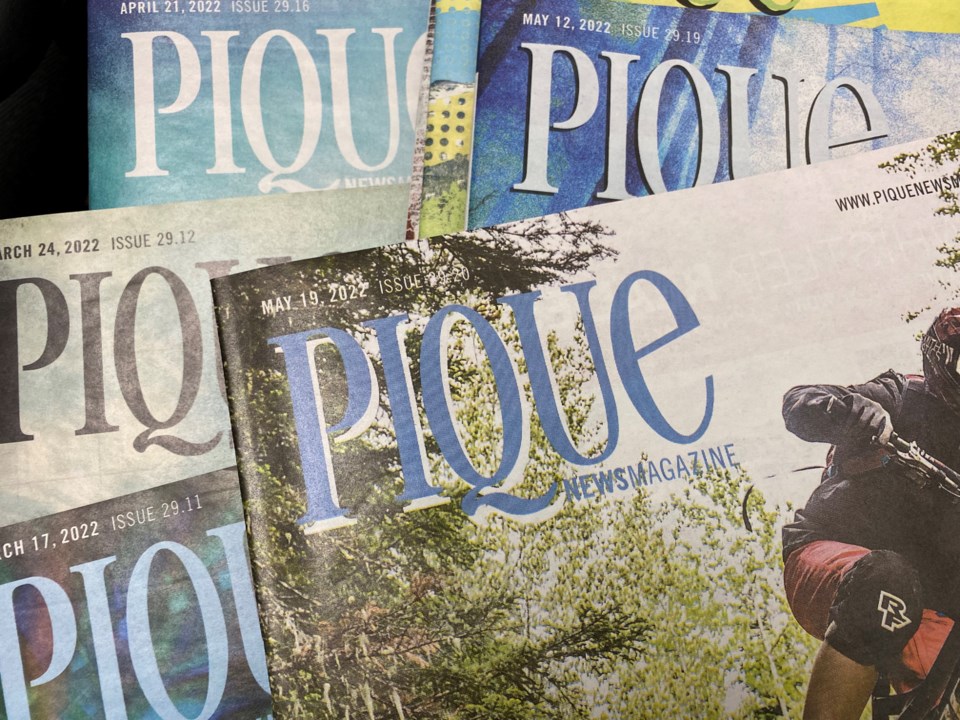Growing up in the ’90s, I often lamented how very boring our lives were. All of the interesting stuff had happened, it seemed, and everything from here on out was just smooth sailing in prosperous seas.
We heard old stories of evil men and their brutal wars; crises averted or met with innovation and tenacity; plagues overcome and revolutions realized—but all of it existed somewhere in the distant, unrecognizable past. The Great Depression. The Cuban Missile Crisis. The Vietnam War. The Summer of Love—history was dramatic, romantic and lyrical; a reflection of a society finding its way, cemented forever in permanent newspaper archives.
But none of the newspapers I read as a kid had anything like that.
And so the ’90s just felt uneventful in comparison; settled even. Or maybe I was just a dumb kid in rural Saskatchewan.
But how naive to believe that history was something that happened in the past, rather than a constant, unending collaboration in which we are all active participants.
Sept. 11, 2001 marked the beginning of the end of that illusion of innocence, at least in my own little bumpkin brain, and the events of recent years have shown us that modern society is still very much a work in progress; current events anything but boring.
And just as the world around us seemingly changes faster by the minute, so too do the ways we record, interpret and understand current events.
But while it’s true that digital is the future of our industry, there’s still something to be said for the permanence of the printed newspaper when it comes to matters of public record. Call me old-fashioned.
On May 14, Pique and our news media colleagues across B.C. and the Yukon celebrated the 100th anniversary of the BC and Yukon Community NewsMedia Association, and May 22 to 29 marks BC Community Newspaper Week.
It’s no secret these are challenging times for journalism, and for media as a business model, but reading the outstanding work of my industry peers, and my friends and colleagues here at Pique, gives me hope for the future.
Good, strong journalism is needed now more than ever, and B.C. is very fortunate in that regard. But our industry is in a precarious place.
When I assumed the role of editor of Pique, it was with a clear mission statement: continue to grow our online readership.
To put it bluntly, the only way to keep Pique successful and sustainable long into the future is to increase our online presence—but not by any means necessary.
And so there is a fine balance at play.
We very much appreciate the support from our readers (and if you’d like to support us, please consider signing up for our newsletter), but that money alone is not enough to keep us operating.
Nor is financial support from the federal government, which Pique and other community newspapers in Canada received in 2021. I’ve been told it’s salacious, incontrovertible proof that we are bought and paid for by Justin Trudeau; in reality, it’s a single drop in a large, leaky bucket of which nobody in the newsroom was even aware, and the suggestion that such a pittance could influence our editorial decisions is both insulting and laughable (and if you’re a regular reader of this column, you might rightly guess I’m no fan of Trudeau, or blind partisanship of any stripe).
Again, the support is welcome, but it’s simply not enough.
Advertising has always been the principle source of revenue that sustains local journalism, and as more and more readers seek us online, so too do businesses and clients choose to advertise with us online.
As an industry we must learn to adapt, or community news goes away. Simple terms, high stakes.
So adapt we will.
In the coming weeks and months, Pique will be experimenting with new workflows and new content in an effort to further engage with our audience. Got a story idea you think will resonate? Email me. See a gap in our reporting? Pick up the phone.
Are you young, passionate and good with words? Send me your column samples.
Pass along your good news, your bad news, your photos and your curiosities—you never know what might land with your fellow Whistlerites.
The new history books, warts and all, are being written day by day and week by week, recorded and interpreted in the printed pages of Pique and other publications.
Our physical archives cover 28 years of local history (and counting), and nearly five full decades when you factor in the physical Whistler Question archives—it is our responsibility to ensure they extend well beyond that.
But as we embrace new mediums and experiment with new methods, the fundamental ideals must remain.
Joseph Pulitzer, the lionized publisher of Pulitzer Prize fame, framed it better than perhaps anyone else.
“An institution that should always fight for progress and reform, never tolerate injustice or corruption, always fight demagogues of all parties, never belong to any party, [and] always oppose privileged classes and public plunderers,” Pulitzer wrote in an 1883 editorial, after becoming publisher of the New York World.
Further, journalism should “never lack sympathy with the poor, always remain devoted to the public welfare, never be satisfied with merely printing news, always be drastically independent, [and] never be afraid to attack wrong, whether by predatory plutocracy or predatory poverty.”
An ideal vision if there ever was one, and one now imposed upon by forces unimaginable in the late 1800s—but something for us to strive for nonetheless.




